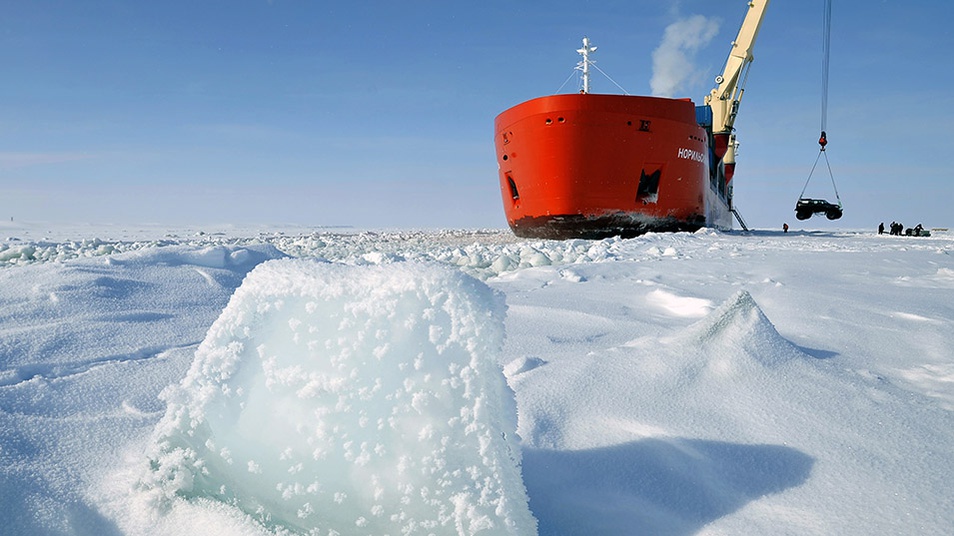
While Russia’s economy is increasingly burdened by Western sanctions, Moscow has recently made crucial headway with a new Arctic transport corridor, which could have far-reaching economic and geopolitical consequences.
Last month, Maersk, which is the world’s largest shipping firm, made headlines by sending its first cargo ship through Russia’s Northern Sea Route. The NSR links Asia to Europe, utilizing Russian waters in the Arctic Ocean.
Moscow’s case for promoting the NSR is obvious. The route between Asia and Europe is about two weeks shorter than its Suez Canal competition. Fewer days at sea means faster delivery times and lower fuel and personnel costs. There are also fewer vessels using the NSR and with Russian policing the route, piracy is not a concern, unlike in the Suez Canal or the Malacca Strait.
Even though Russia has long used the route, the NSR is now attracting global attention due to climate change. Although it is only currently accessible for roughly three months of the year, this window — along with its global importance — is only expected to widen over the coming years as temperatures rise.
But this new transport corridor, linking South Korea to St. Petersburg, is already redefining the international flow of goods and services. Capitalizing on increasing Asian demand for Russian natural gas exports, Moscow will increasingly link its Yamal production directly to the growing North East Asian markets of South Korea and Japan. This is dire news for the shipping economies in the region, like Singapore, which rely heavily on the tariffs generated by their role in the global transportation chain.
For much of the past decade, analysts have said the NSR is merely a pipedream. Some critics have argued that the isolated nature and operational environment of the Arctic was a roadblock. Others argued that in order to be competitive, the NSR must be accessible year-round. Experts also have suggested that Russian energy is a thing of the past, citing “game-changing” U.S. LNG.
Frankly, climate change is taking care of the ice and Putin has injected large investments into Arctic infrastructure to make the region more accessible. Basic market forces reject the assumption that Russian LNG is not competitive. U.S. LNG is expensive in comparison to Russian Arctic LNG, especially taking into consideration the fact that Russia’s energy export market is simply closer to the import-hungry Asian market.
What’s more, a burgeoning global population necessarily means increases not only in energy demand, but demand of goods via our transport corridors. Congestion in the existing corridors will only continue to rise and this quite simply threatens supply security for much of the market. Enter the NSR.
Russia will assume the Chair position for the Arctic Council in 2021, an intergovernmental forum which addresses regional issues. In the lead up, Moscow can be expected to tout the corridor as a reliable, commercially sound and secure international transport route. Which it is.
It is likely that Russia, especially in its role of Council chair, will frame the NSR as a hallmark of Russia’s cooperative Arctic agenda. Potentially, further Arctic securitization measures including military installations will be employed by Moscow to safeguard its economic interest in the NSR. Despite the NSR tariff potential and windfalls for the Kremlin, the bigger prize for Russia is that it will facilitate Moscow’s control over a vast amount of global trade.
Dr. Elizabeth Buchanan is the Jean Monnet Research Fellow with the Centre for European Studies at The Australian National University. Her areas of expertise are Russian foreign energy strategy and Arctic geopolitics. The views and opinions expressed in opinion pieces do not necessarily reflect the position of The Moscow Times.
